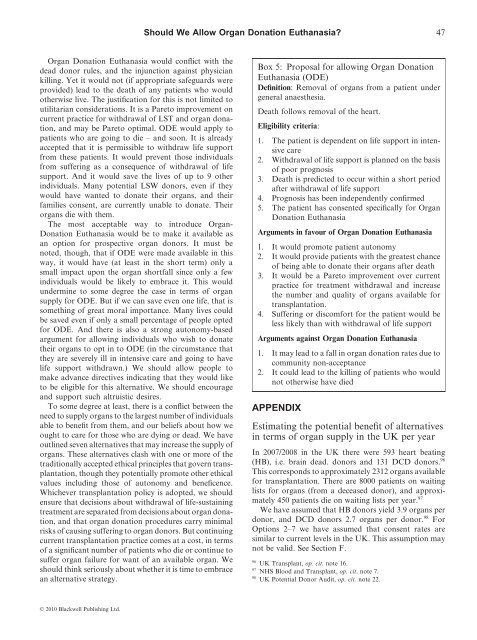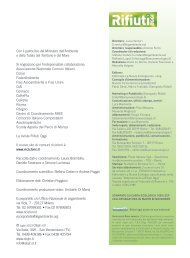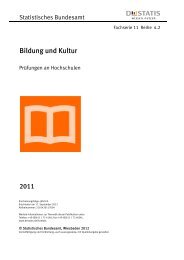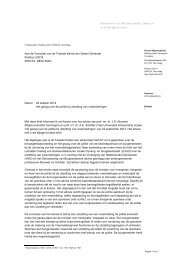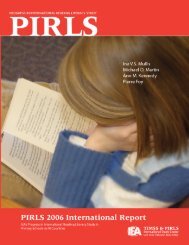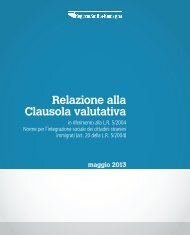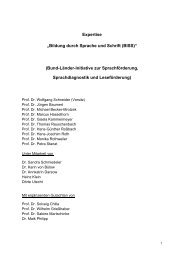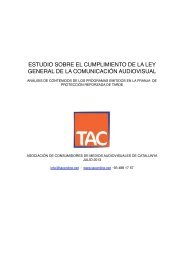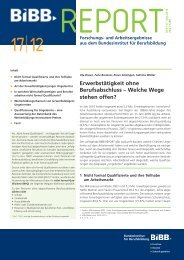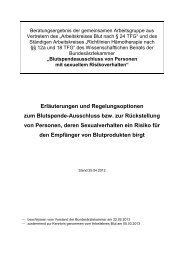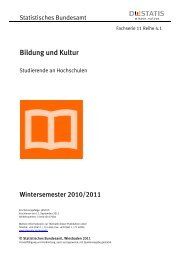should we allow organ donation euthanasia? - Wiley Online Library
should we allow organ donation euthanasia? - Wiley Online Library
should we allow organ donation euthanasia? - Wiley Online Library
Create successful ePaper yourself
Turn your PDF publications into a flip-book with our unique Google optimized e-Paper software.
Should We Allow Organ Donation Euthanasia? 47Organ Donation Euthanasia would conflict with thedead donor rules, and the injunction against physiciankilling. Yet it would not (if appropriate safeguards <strong>we</strong>reprovided) lead to the death of any patients who wouldotherwise live. The justification for this is not limited toutilitarian considerations. It is a Pareto improvement oncurrent practice for withdrawal of LST and <strong>organ</strong> <strong>donation</strong>,and may be Pareto optimal. ODE would apply topatients who are going to die – and soon. It is alreadyaccepted that it is permissible to withdraw life supportfrom these patients. It would prevent those individualsfrom suffering as a consequence of withdrawal of lifesupport. And it would save the lives of up to 9 otherindividuals. Many potential LSW donors, even if theywould have wanted to donate their <strong>organ</strong>s, and theirfamilies consent, are currently unable to donate. Their<strong>organ</strong>s die with them.The most acceptable way to introduce Organ-Donation Euthanasia would be to make it available asan option for prospective <strong>organ</strong> donors. It must benoted, though, that if ODE <strong>we</strong>re made available in thisway, it would have (at least in the short term) only asmall impact upon the <strong>organ</strong> shortfall since only a fewindividuals would be likely to embrace it. This wouldundermine to some degree the case in terms of <strong>organ</strong>supply for ODE. But if <strong>we</strong> can save even one life, that issomething of great moral importance. Many lives couldbe saved even if only a small percentage of people optedfor ODE. And there is also a strong autonomy-basedargument for <strong>allow</strong>ing individuals who wish to donatetheir <strong>organ</strong>s to opt in to ODE (in the circumstance thatthey are severely ill in intensive care and going to havelife support withdrawn.) We <strong>should</strong> <strong>allow</strong> people tomake advance directives indicating that they would liketo be eligible for this alternative. We <strong>should</strong> encourageand support such altruistic desires.To some degree at least, there is a conflict bet<strong>we</strong>en theneed to supply <strong>organ</strong>s to the largest number of individualsable to benefit from them, and our beliefs about how <strong>we</strong>ought to care for those who are dying or dead. We haveoutlined seven alternatives that may increase the supply of<strong>organ</strong>s. These alternatives clash with one or more of thetraditionally accepted ethical principles that govern transplantation,though they potentially promote other ethicalvalues including those of autonomy and beneficence.Whichever transplantation policy is adopted, <strong>we</strong> <strong>should</strong>ensure that decisions about withdrawal of life-sustainingtreatment are separated from decisions about <strong>organ</strong> <strong>donation</strong>,and that <strong>organ</strong> <strong>donation</strong> procedures carry minimalrisks of causing suffering to <strong>organ</strong> donors. But continuingcurrent transplantation practice comes at a cost, in termsof a significant number of patients who die or continue tosuffer <strong>organ</strong> failure for want of an available <strong>organ</strong>. We<strong>should</strong> think seriously about whether it is time to embracean alternative strategy.Box 5: Proposal for <strong>allow</strong>ing Organ DonationEuthanasia (ODE)Definition: Removal of <strong>organ</strong>s from a patient undergeneral anaesthesia.Death follows removal of the heart.Eligibility criteria:1. The patient is dependent on life support in intensivecare2. Withdrawal of life support is planned on the basisof poor prognosis3. Death is predicted to occur within a short periodafter withdrawal of life support4. Prognosis has been independently confirmed5. The patient has consented specifically for OrganDonation EuthanasiaArguments in favour of Organ Donation Euthanasia1. It would promote patient autonomy2. It would provide patients with the greatest chanceof being able to donate their <strong>organ</strong>s after death3. It would be a Pareto improvement over currentpractice for treatment withdrawal and increasethe number and quality of <strong>organ</strong>s available fortransplantation.4. Suffering or discomfort for the patient would beless likely than with withdrawal of life supportArguments against Organ Donation Euthanasia1. It may lead to a fall in <strong>organ</strong> <strong>donation</strong> rates due tocommunity non-acceptance2. It could lead to the killing of patients who wouldnot otherwise have diedAPPENDIXEstimating the potential benefit of alternativesin terms of <strong>organ</strong> supply in the UK per yearIn 2007/2008 in the UK there <strong>we</strong>re 593 heart beating(HB), i.e. brain dead. donors and 131 DCD donors. 96This corresponds to approximately 2312 <strong>organ</strong>s availablefor transplantation. There are 8000 patients on waitinglists for <strong>organ</strong>s (from a deceased donor), and approximately450 patients die on waiting lists per year. 97We have assumed that HB donors yield 3.9 <strong>organ</strong>s perdonor, and DCD donors 2.7 <strong>organ</strong>s per donor. 98 ForOptions 2–7 <strong>we</strong> have assumed that consent rates aresimilar to current levels in the UK. This assumption maynot be valid. See Section F.96 UK Transplant, op. cit. note 16.97 NHS Blood and Transplant, op. cit. note 7.98UK Potential Donor Audit, op. cit. note 22.© 2010 Black<strong>we</strong>ll Publishing Ltd.


